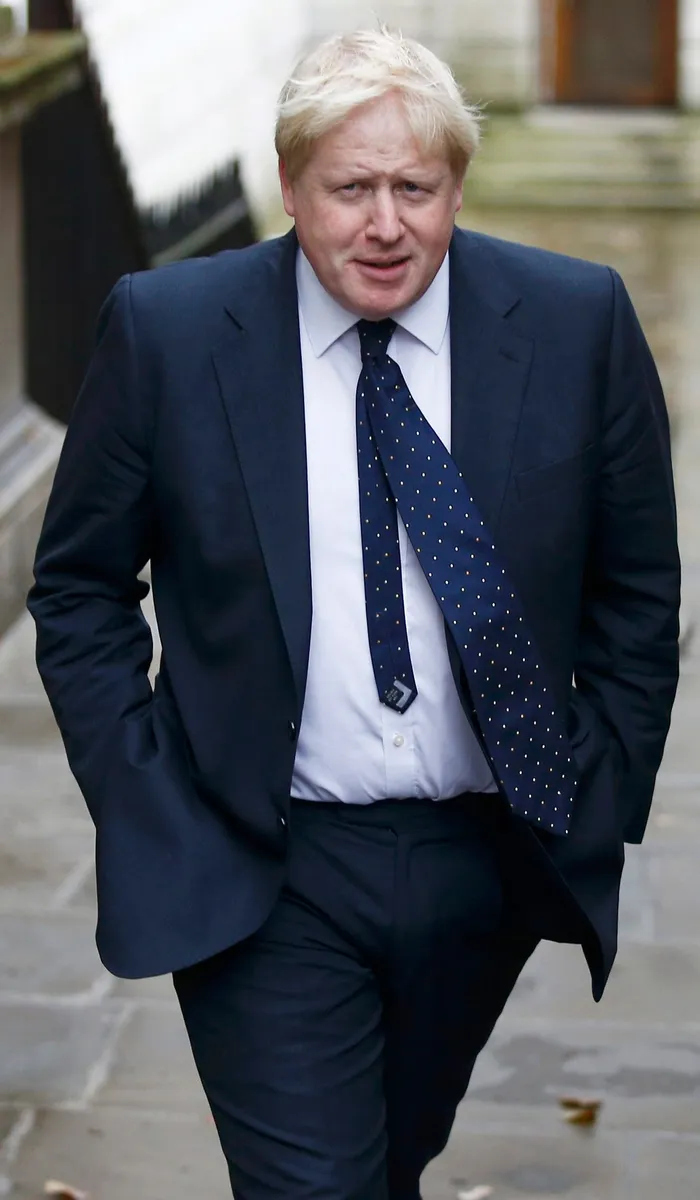Boris Johnson’s colossal fall from grace

Scandal-ridden Boris Johnson announced he would quit as British prime minister after he dramatically lost the support of his ministers and most Conservative lawmakers, but said he would stay on until his successor was chosen. Picture: REUTERS/Peter Nicholls
London - British Prime Minister Boris Johnson, visibly frustrated but unduly subdued, finally caved in to the demands from the majority of his Conservative (Tory) Party parliamentary colleagues and announced his resignation yesterday outside the famous black door of Number 10 Downing Street in London.
Johnson merely resigned as leader of the Conservative Party and remains the de facto prime minister until a new Tory leader is chosen.
There are those across the political spectrum who prefer to see him resign as prime minister immediately instead of acting as a caretaker for at least three more months because the once iconic Johnson ‘brand’ has become so toxic and tainted by a litany of scandals, trust and integrity issues including among long-standing loyal Tory voters in the shires.
His fall from grace as the 55th prime minister of the ‘mother of parliaments’ is a lesson to democratic leaders all over the world that constitutional politics, trust in politicians, and integrity of leaders in the end will always triumph. Not bad for a country like the UK which, unlike South Africa, does not have a written Constitution or Bill of Rights, but a series of conventions based on the ‘lived experiences’ of the holders of the prime minister’s office.
That Johnson is an arch narcissist is not in question. Some of his close supporters would prefer to call him eccentric or espousing the quintessential Churchillian bulldog spirit. Others allude to his sense of supreme entitlement because of his privileged Etonian and Oxbridge education.
Not surprisingly, in his brief resignation speech, he blamed the political system, parliament and “the will” of his own party, stressing that "at Westminster the herd instinct is powerful, when the herd moves, it moves." There was no contrition, no mention nor any apology of his entrenched personal failings defined by his economy with the truth and even misleading parliament.
After all, this was implicit in his mishandling of the alleged sex scandal involving a close friend and Tory Deputy Whip which he initially denied having any knowledge of but later retracted after a retired senior Whitehall mandarin wrote that Johnson was briefed about the incident and accused the government was not telling the truth. This was the last straw for his Heath Secretary Sajid Javid and his Minister of Finance Rishi Sunak, whose resignations signalled the beginning of the end of Johnson’s tenure at Downing Street.
The spectre of a deluded Johnson parading out junior ministers to defend his actions on the basis that he forgot that he was briefed on the serious and serial sexual harassment antics of his Deputy Whip, was an exercise in futility as it was reminiscent of a ‘Carry on Boris’ farce.
When there is a government in crisis, British democracy – both in form and substance - tends to prevail. The finest hour was on Thursday when Johnson was summoned in front of the House of Commons Liaison Committee – a meeting of the Heads of all the Parliamentary Special Committees. The barrage of questions volleyed at Johnson largely by Tory MPs, famous for their brutality in such instances, including: “Prime Minister, are you a man of integrity”, visibly shook the usually bombastic and confident Tory leader.
He tried to fight back and desperately hang on to power by claiming that he had a personal mandate from the British people after winning the biggest majority at the 2019 general election since 1987 and attracting new voters to his party. The reality of course is that in Britain there’s a parliamentary system in which voters elect individual constituent MPs and not a prime minister. Just as well the UK does not have a presidential system.
Boris claimed to have delivered Brexit. All eyes will now be on how he delivers his own exit from British politics. The government chaos over the next few weeks has merely taken on a new playbook.
Cape Times
Related Topics: